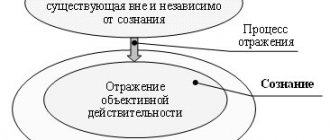05.02.2009 13:4858760 Scientifically, an extreme degree of inattention is called attention deficit hyperactivity disorder (ADHD). Most often, this diagnosis is given to children, but untreated, it is transmitted to adults. Moreover, the inability to concentrate may not be accompanied by visible hyperactivity; The syndrome is most often expressed in the inability to solve several problems at once, to perceive information normally and absent-mindedness.
But if all of the above applies to you, there is no need to run to the doctor. Lack of attention can be caused not only by illness, but also by certain environmental factors and your lifestyle. Here they are.
Technogenic overload
The latest technologies not only make our lives more convenient, but also completely capture our attention. Up to a certain point, your brain can, like a good secretary, sort everything into shelves and structure its tasks. But the more things you do at once, the more difficult it is to concentrate on each one individually.
Imagine: you are working on an official report, at the same time you are communicating on ICQ, receiving SMS, and even trying to adjust the intensity of the air conditioner. Not surprisingly, the more buttons you press, the faster you forget what you were doing.
What to do. The simplest way out is to keep a diary, writing down everything you need to do today. Also try to arrange days of rest from the Internet and cell phone. You will see that when all these “devices” are turned off, you will complete your work much faster.
When to see a doctor. If, having taken a break from work to send an SMS, you cannot return to work for a long time and are looking for new reasons not to do it.
Lack of sleep
The sleep norm for a person aged 20 to 60 is from 7 to 9 hours a day. If you sleep less, you can develop chronic irritability, weakness, headaches and poor concentration. It’s clear that all this significantly reduces your performance and overall alertness.
What to do. The answer is simple - get enough sleep. Your condition should return to normal.
When to see a doctor. If you sleep more than 8 hours a day and still experience symptoms of sleep deprivation. The reasons can be different: from a basic violation of sleep hygiene to a serious sleep disorder.
Bad job
Dissatisfaction - with yourself, with your job, with your home, with anything - can cause serious, chronic problems. And since work occupies one of the main positions in our lives, dissatisfaction with work sometimes plays a decisive role in our mental state.
Of course, from time to time we all get bored with what we do. But if you're constantly working hard and have absolutely no passion for what you're doing, it's not surprising that your attention is more willing to jump to something outside of your work.
What to do. There is only one way - change jobs.
When to see a doctor. Problems at work can indeed be a consequence of ADHD. If a person is unable to perform sequential operations, copes poorly with group tasks and changes jobs several times a year, there is reason to think about it and consult with a specialist. Psychologists also note that a symptom of ADHD can be a constant feeling of worthlessness and low professional self-esteem.
Give clear instructions
If a child is inattentive, he needs to be taught to concentrate. Direct his attention: “Let’s clear the unnecessary things from the table and look in the diary what we have assigned.” At the first stage, the parent should talk through and organize the entire process.
When the student gets used to the daily ritual, post a reminder in the form of a list or pictures. Don't expect the student to follow the instructions right away; this will take weeks or even months. Be patient!
Stress
Constant stress affects the state of the cognitive centers of our brain. A person loses the ability to think clearly and react quickly to the environment.
What to do. Try to have rest sessions at least twice a day. Find a quiet, secluded place and focus on one thought or image. 5-10 minutes of such meditation will be enough to bring your thinking abilities more or less in order.
When to see a doctor. When stress and absent-mindedness develop into depression or sudden unmotivated mood swings.
Sedentary lifestyle
Many studies have confirmed that regular exercise gives mental clarity and memory strength. In addition, they will help eliminate the very causes of inattention. For example, they will relieve you of excess energy, leading to that same hyperactivity, or they will exhaust you so much that your sleep will be long and sound.
What to do. If you can't go to the gym, limit yourself to 20 minutes of exercise every morning. Or try to walk more - fresh air and sunlight will also help improve your mood and ability to perceive.
When to see a doctor. If you can’t sit still for more than 5 minutes and constantly walk back and forth around the office, without any objective purpose. By the way, too much exercise can also be a painful symptom. If you are drawn to squeezing the last juices out of yourself for 2-3 hours a day, it is better to make sure of the usefulness of your exercises by consulting with your doctor.
Continued: How to become attentive →
Next material
You may also be interested
Therapy
A medicinal solution to the problem is possible only after a thorough examination. Typically, memory deterioration requires treatment with medications after 40-50 years, when recommended exercises do not bring the expected results. The most commonly recommended technique for these purposes is:
- Bilobila, which is made from the extract of the Ginkgo Biloba plant. The medicine normalizes blood circulation, improves brain functioning, helps eliminate anxiety, improve sleep and mood.
- Glycine, which is the safest remedy that has a gentle effect on brain processes.
- Aminalon, which allows the absorption of glucose, which is nutrition for nerve cells.
- Eleutherococcus extract, which tones the body, restores mental activity, and reduces stress.
Cortexin
A special role for the treatment of memory disorders is played by the administration of Cortexin, produced from the brain of cattle. It is produced as a powder, which, when dissolved, is injected. This drug is widely used for brain injuries and strokes. Allows you to treat Alzheimer's disease and senile dementia. It is also widely used to improve cognitive function of the brain.
Cortexin improves the balance between inhibition and excitation, protects brain cells from oxygen starvation, and prevents their aging. This natural remedy is prescribed in courses, which can be repeated three times a year if necessary.
By adhering to certain rules, you can get rid of absent-mindedness. If simple exercises do not improve your well-being, it is recommended to consult a doctor. He will prescribe medications that will help eliminate memory problems.
What is absent-mindedness and inattention?
Absent-mindedness and inattention are the inability to concentrate on any object or action. These character traits cause a lot of problems for absent-minded and forgetful people who have them. They themselves suffer because they forget about important promises and meetings, and their loved ones and friends suffer. It happens that for this reason they are even fired from their jobs.
These people try to concentrate, promise themselves to be attentive, but nothing works out for them. They make a list of things that they take with them on a trip, write down the things they need to do, but as a result they forget where they put the notebook with notes...
And then they begin to think: maybe this is not a character trait, but a psychological deviation? Or maybe one of the symptoms of some disease? Perhaps the situation can be corrected by taking medications, vitamins or adjusting your diet?
However, forgetfulness, absent-mindedness and inattention are so common that even the term “attention deficit disorder” has appeared. To some extent, all people are forgetful, because, probably, each of us at least once in our lives had to forget something purchased and paid for in a store. A left-on iron or a forgotten and burnt kettle or pan are generally classic examples of absent-mindedness.
Psychologists identify three types of inattention
"Fluttering" attention
This is a weak concentration of attention, which is characterized by slight involuntary switching. Such inattention is typical, for example, of preschoolers. It occurs when tired, after a sleepless night, during a headache or during monotonous monotonous work. A type of such absent-mindedness is road hypnosis, when a person falls into a state of half-asleep that occurs during a long trip on a calm road.
"Professor's" absent-mindedness
With the second type of inattention, there is a high concentration of attention with difficulty switching, which is characteristic, for example, of scientists focused on their thoughts - the so-called “professorial” absent-mindedness. Many great people were absent-minded because they were focused on their creativity.
For example, N. Zhukovsky, who is called the father of Russian aviation, once received guests in his own living room. A few hours later he got up, put on his hat and began to say goodbye, apologizing that he had stayed too long visiting and it was time to go home.
And the English mathematician and physicist Isaac Newton once decided to boil an egg and put a watch in the water instead. There were also such oddities: the astronomer Galileo did not recognize his wife in his marital bed, because he forgot that he was married. And the historian Mommsen, looking for his glasses, thanked the girl who gave them to him and asked her name. “Anna, your daughter, dad,” the girl answered.
The same type of inattention is found in people who are haunted by obsessive thoughts, or in people who are too absorbed in the implementation of an overvalued idea - a fixed idea.
Poor concentration
And the third type of inattention is a weak concentration of attention with even weaker switchability. It is typical for people who have reduced strength and mobility of nervous processes. Usually in this case they talk about senile absent-mindedness. In healthy people, these processes decrease when overworked.
It is curious that psychologists, studying absent-mindedness and forgetfulness, observed a group of people during an experiment and noticed that in men these properties “exacerbated” in the period from 8 to 10 o’clock in the morning, and in women from 10 to 12 o’clock. And regardless of gender, the peak of errors was observed from 4 to 6 pm and from 8 to 10 pm.
Need for treatment
Treatment for absent-mindedness depends on the severity of the disorder.
- Internal factors. Organic brain damage. The need for clinical treatment.
- External factors. Overwork or illness.
In the first case, inattention is considered a mental disorder, which can even occur with complete loss of memory. Most often this happens due to depression or anxiety disorder. With this diagnosis, drug treatment is prescribed, antidepressants or nootropic drugs are prescribed. At the same time, a psychologist is provided with help to work through emotional situations, if any.
"Fluttering" attention
The second type of attention disorder does not require serious medical treatment
It can be called “fluttering” attention. It is typical for teenagers and older people
This type of inattention is observed in people who are overworked or weakened by illness. Their attention, incapable of sustained concentration, flutters like a butterfly, switching from topic to topic.
In ordinary people, absentmindedness of this type is temporary, provided that such inattention is combated and the reasons that cause it. This pathology is affected by a temporary decrease in the mobility of nervous processes. In the clinical case, this occurs due to cerebral oxygen starvation or cerebral atherosclerosis. Most often this occurs in older people.
“How to get rid of absent-mindedness and bad memory? What to do?" - a frequently asked question from anxious patients, which they address to psychologists. They are concerned about whether the disease is serious, whether it needs treatment, and how to deal with absent-mindedness. Often this type of inattention manifests itself in the inability to concentrate and difficulty switching attention from object to object or from one type of activity to another. This type does not need serious treatment for absent-mindedness. The cause may be simple physical, emotional or mental fatigue. In this case, it is clear what needs to be done. Just give your body a rest, perhaps even a change of scenery for a while.
Causes of absent-mindedness
To get rid of absent-mindedness, you need to know its causes. The main thing is that this is not an innate character trait, but an acquired one.
There is an opinion that absent-mindedness can occur:
- on a subconscious level - with reluctance to do what you need to focus on;
- for overwork , headache, fatigue, etc.;
- while performing automatic actions in a familiar environment when attention is suddenly distracted by external or internal factors. For example, a woman is peeling potatoes when her friend calls her and tells her an exciting story. It would not be surprising if, having listened, she automatically throws the potatoes into the trash can and the peelings into the pan. Or another story: the cashier working at the cash register is mentally worried about the upcoming divorce. Naturally, errors in her work are inevitable;
- when trying to do several things at once . People say about an absent-minded person that he counts crows. That is, his attention is diverted from his main occupation by extraneous matters;
- with organic brain lesions ;
- for certain mental illnesses (depression, anxiety disorders).
Often people suffering from absent-mindedness and forgetfulness blame their memory, but it has nothing to do with it.
Diagnostics
To diagnose the causes that influenced the occurrence of absent-mindedness, an MRI may be prescribed
If absent-mindedness is present, the following studies may be prescribed:
- Initially, the patient is recommended to undergo an examination by a neurologist, during which the doctor assesses the state of functioning of fine motor skills and excludes the presence or absence of neurological symptoms;
- conducting a neuropsychological test to assess the level of intellectual abilities, attention and performance;
- genetic analysis;
- blood biochemistry to determine the level of glucose, magnesium, iron, lead;
- ultrasound examination of cerebral vessels using Dopplerography;
- Magnetic resonance imaging;
- electroencephalography with EP.
How to easily get rid of absent-mindedness
Absent-mindedness is not such a harmless character trait, so psychologists study its causes. After all, the inattention of people who service, for example, dangerous equipment can cause a catastrophe or man-made accident.
Absent-mindedness is treated or corrected depending on the cause of its occurrence. For depression or anxiety, the psychotherapist selects antidepressants. If it is caused by overwork, then rest, a change of environment, etc. will solve the problem.
5 steps
If absent-mindedness becomes chronic and firmly established in our lives, we can analyze our lifestyle and take the following steps:
- Determine priorities and concentrate your attention on completing one task or only one object. Most people do not know how to do two or three things well at the same time. For example, a group of participants in a psychological experiment were asked to observe athletes at a volleyball match and count the number of balls thrown into the basket by team members wearing blue T-shirts. During the match, a man dressed in a gorilla suit walked across the field, but no one noticed him, since everyone was busy watching the players and counting the goals scored. After watching the game again, the experiment participants were very surprised that they had not noticed such an obvious fact;
- While working remove all objects that distract attention and create chaos. Extra items on the desktop - books, magazines that are not relevant to the task, photographs that lead to thoughts of relaxation; for those who have problems concentrating, it is better to put them away;
- Use visual cues . Of course, you can keep a diary where you can write down upcoming tasks. Additionally, you can use some item that will remind you of an important matter in the morning. For example, in the evening, put a regular sheet of paper or a book on the floor in the middle of the room. One look at them in the morning and we will remember that we need to make an urgent call. This method is reminiscent of grandma’s “memory knot.” Our grandmothers tied such knots on handkerchiefs so as not to forget to do something important;
- Pause to collect your thoughts and fix your attention on the current moment. For example, when leaving the apartment, we should not think about whether we are on time for the bus, but focus on thoughts about its safety: check electrical appliances, gas, water, etc.;
- Solve all problems as they arise, without delaying until later. A pile of unfinished tasks also leads to chaos in thoughts and absent-mindedness.
© Elena Timoshenko, BBF.RU
InterpretationTranslationInattentiveness is a negative moral and ethical quality of a person, characterizing a lack of care for people in need, an inability to see their problems, failure to notice other people's needs, grief or, on the contrary, joy, success, growth. Inattention is insensitivity, focusing attention either only on one’s own problems, or only on “large-scale” problems, behind which a particular person is not visible or noticeable. In a narrower sense, inattention characterizes a disorder of attention, its distraction, loss of interest in an object, a subject that needs it.
Fundamentals of spiritual culture (encyclopedic dictionary of a teacher).— Yekaterinburg.
V.S. Bezrukova. 2000. Synonyms
:
Antonyms
: Other books on request “Inattention” >> Attention
join the discussion
Share with your friends
Content
Inattentive people always suffer from their own inattention. They forget everything and cannot complete even the most basic tasks. Because of this, they have to listen to reproaches from their superiors and from their loved ones. To get rid of the problem, you need to show willpower and familiarize yourself with the following information.
What is this in psychology?
Distracted attention is considered a very significant disorder of the nervous system. These difficulties must be taken very seriously. It should be noted that they can affect any person. But there is no need to panic.
When concentration is impaired, a person feels some discomfort. If the problem gets worse, then the person can be said to be suffering from signs of absent-mindedness.
To compare 2 concepts such as inattention and mindfulness, you need to understand what mindfulness is. So, mindfulness is the process of the highest concentration of attention or complete processing of specific information, thanks to which any individual can easily navigate the environment.
When the process of inattention is formed, then the process of concentration fades away. This is how absent-mindedness is formed in a person’s consciousness. It must be taken into account that a person is not born with absent-mindedness. This flaw is acquired over the years. Inattention in adults and children can appear for various reasons, it all depends on the characteristics of personality formation.
Know that absent-mindedness is a state of constant forgetfulness. As a result of the onset of this condition, a person loses the ability to develop normally. He has problems both at work and at home. Therefore, this condition must be eliminated by all available means.
Inattention comes in different forms.
- Functional. This appearance can appear when fatigue sets in. For example, if a person performs monotonous actions at work, and his concentration begins to dull naturally.
- Creative. This type is observed in people who are preoccupied with creating something new and unknown. Creative people are constantly looking for new ideas, and therefore cannot focus their attention on more mundane things.
- Minimal. This happens when a person is unable to focus his attention on meaningful information due to being too immersed in his thoughts. The person is completely immersed in the experience and is no longer able to get out of this problem.
- Rigid. This condition is mainly experienced by people with epilepsy and other diseases of the nervous system. A person is simply unable to maintain his concentration on anything for a long time and quickly switches from one topic to another.
- Unstable. When a child or adult has hyperactivity in their character, it is difficult for them to focus on the same object for a long time.
What should parents of an inattentive child do?
Parents play an important role when their child has problems with attentiveness and perseverance. They must fulfill the following requirements:
- be sure to adapt to your child’s routine and constantly comply with it;
- control that the child feels calm during the day, so that he does not become overtired; it is also not advisable for him to spend a long time in front of the TV or computer screen;
- try to interest the child in some sports games, you can sign him up for the pool, and also go with him constantly for walks in the fresh air;
- It is advisable to avoid visiting places with large crowds of people and not to invite a large number of guests.
A child’s attention must be trained from childhood so that in the future he does not develop a state of restlessness, loss and absent-mindedness.
It is advisable to interest him in various educational games. Even in infancy, you need to show different toys and name them so that he can already focus on them. If suddenly you have already noticed signs of attention disorder in your child, then it is necessary at the initial stage to begin to independently develop attentiveness and determination.
Buy educational games, construction sets, mosaics. The child must develop perseverance, and each lesson must be completed to the end, and to facilitate this process, parents must help him with this.
Types of violation
Nervous system disorders must be taken seriously. Before making any decisions to eliminate this problem, you should familiarize yourself with the forms that are inherent in such violations.
For the first time, true inattention was described by the American philosopher and psychologist W. James. He argued that during the onset of the above-described state, a person disconnects from everything: from plans, from the external environment. With a loss of attentiveness, a person’s consciousness wanders and cannot stop for a long time on any specific object. This type of condition is usually called dispersion or prostration.
Moreover, this state has a very strong influence on mental activity. A person feels a loss of strength due to the fact that he cannot concentrate. As a result, complete apathy sets in and interest in any activity disappears. The reason that causes this condition is either insomnia, or some illness, or complete fatigue from the tasks being performed.
Often, this condition affects drivers who are forced to drive for a long time on the road where nothing interesting happens.
Children often experience absent-mindedness. Due to uncontrolled mobility, attention is distracted. However, inattention problems in children may arise for another reason, namely due to the manifestation of symptoms that are associated with psychopathology.
The older generation also suffers from problems caused by lack of concentration. Such problems are called senile absent-mindedness. Due to poor switching ability, which is directly related to a lack of concentration on an object, concentrating on something becomes ineffective.
There are other types, such as imaginary absent-mindedness. The reason for this phenomenon is the many pictures that are in front of a person’s eyes and replace each other very quickly. Often this state is caused by both deep feelings and experiences. Strong emotions also prevent a person from concentrating normally on objects that are around him.
It should be noted that any individual can be affected by this condition, and this is not surprising.
Experts in Gestalt psychology argue that concentration can be weakened when an emotional state arises. For example, if a person receives a dose of adrenaline, his attention will decrease significantly.
Sometimes a person quite consciously tries not to notice some of the details that surround him. This kind of inattention is called motivationally determined. It manifests itself when a person specifically does not notice any objects that may cause him stress. Cognitive inattention is expressed in the following manifestations: a person often does not notice the sound of the clock hands or the beating of his heart.
Motivate correctly
Psychologists distinguish involuntary and more complex voluntary attention, which develops as a person grows older. Voluntary attention helps to do not the most interesting things: proofread manuscripts or make sure that the milk does not run away. An adult makes volitional efforts to concentrate on boring things, for example, for the sake of gain in the future.
To solve several columns of examples or write out words from a text, the student needs to work hard. Not everyone is ready to sit for half an hour on a notebook for five. Some people need an additional reward: watching a cartoon, a healthy treat, a small surprise.
It is important to immediately explain that this is not payment for work, but a way to please the student. At the same time, you should not reduce all the encouragement to sweets - this way you will form a bad eating habit. Gradually, you need to teach your child to come up with bonuses for himself: play a board game or tablet, read his favorite book, draw as a form of relaxation and pleasure.
Symptoms
People suffering from absent-mindedness quite often make mistakes at work and suffer from a general lack of concentration. Imaginary absent-mindedness can be caused by psychological problems. When any difficulties arise, a person concentrates his attention on overcoming them, and at the same time other information or objects fade into the background.
By the way, chronic fatigue syndrome can also cause problems related to concentration.
However, it must be remembered that imaginary and genuine inattention are very different from each other. If experts do not consider imaginary inattention to be a disease, then if genuine absent-mindedness occurs, they sound the alarm, since in this case a serious pathology may develop. Let's look at the symptoms that may indicate clinical problems:
- the occurrence of headaches;
- loss of performance;
- mood swings and changes in behavior;
- constant drowsiness;
- persistent feeling of fatigue, even after a good rest;
- inability to concentrate on anything;
- frequent loss of personal belongings;
- decreased activity in general, as well as sexual activity.
It should be noted that children also suffer from absentmindedness. It may manifest itself as follows:
- slowness;
- quick switching from one activity to another;
- poor memory;
- rapid excitability;
- frequent tantrums.
Children can often behave this way for a number of reasons, so there is no need to worry too much. However, if such manifestations are persistent and long-term, you need to make an appointment with a specialist and get advice.
Provoking factors
Inattention in a child can be caused by a variety of factors. Experts recommend that before thinking about how to eliminate absent-mindedness, try to identify its exact causes, and there are many of them:
A schoolchild's absent-mindedness may be a consequence of dysfunctional relationships in the family or with peers. The same reasons can prevent an adult from fully using his own attention. If this condition continues for more than six months, it is strongly recommended to consult a neurologist.
The time frame in which a child learns certain things and the effectiveness of "early intervention", that is, early intervention with the therapies that parents always go crazy with, is scientifically proven. How do you differentiate between a developmental disorder, a normative variant, and a poor education?
Parents should look forward to their child, watch and stimulate them with love, sing, talk, read to him. And, of course, preventive examinations by pediatricians regularly. If they notice something about their child, they should discuss it with the doctor. Experienced pediatricians who take the time to do so can usually reassure parents that this is still normal development if their child is not speaking fifty words by age two. And they can give parents advice about the possibilities for the child's further development.
Causes of Concentration Problems
Inattention occurs for various reasons: from fatigue, from headaches, from monotonous work. Let's look at the most common reasons.
Physiological
If you have difficulty concentrating and general forgetfulness, then these problems could arise due to various physiological conditions.
- Coming of a certain age. A person ages, and his body begins to malfunction in different directions. Good brain function is influenced by various factors, including disorders in the cardiovascular system.
- The onset of menopause in women can also cause inattention.
- Transitional age. Teenagers often suffer from this factor due to disruptions in the hormonal system.
- Pregnancy and lactation can cause lack of concentration.
- Diseases associated with the nervous system directly affect the functioning of the brain as a whole. This means that lack of concentration becomes the norm.
- Decreased immunity can also cause inattentiveness.
Psychological
Such reasons arise due to the fault of the person himself. Often, without enough sleep, an individual takes on work that requires increased attention. As a result, all his efforts come to naught.
Very nervous people may suffer from inattention. They constantly find non-existent problems around them. Because of this behavior, their psyche begins to malfunction. Therefore, psychosomatics arises, which indicates problems.
Stressful work affects brain function and, as a rule, attentiveness. In addition, certain factors can cause poor concentration.
- Stress. In this case, a person’s consciousness is completely aimed at solving a problem.
- Sedentary lifestyle. In this case, the person becomes very relaxed and reacts poorly to the changes happening around him.
- Lack of order in thoughts and surrounding things. When a person takes on everything at once, he does not succeed, since in this situation it is very difficult to concentrate his attention.
What memory medications can be given to young children?
Poor memory can be treated, and this does not always require medications or secret techniques of Tibetan monks.
- Attentiveness. Every day you need to consciously show attentiveness and learn to concentrate on one process. Doing several things at once is not a good idea. More often than not, you don't remember something because you weren't focused enough at the right time.
- Logical connections. Game of associations and logical connections. New information, connected in any way to previously learned information, is remembered many times faster. Train your imaginative thinking.
- Physical exercises for the body. It's no secret that an active lifestyle improves a person's memory. This is due to the fact that during movement the brain is saturated with oxygen. Try to do physical exercise, because... they help fight stress, which negatively affects brain performance.
- Contact your doctor. Of course, this does not mean that you need treatment. However, consultation and diagnosis are never superfluous. In addition, the doctor is able to determine whether a serious disorder or simple inattention is the cause of memory deterioration. Also at the appointment, the specialist will tell you what to do. Remember that self-treatment can lead to bad consequences.
Monitor your lifestyle, rule out possible causes of deterioration, be active and inquisitive.
All this will save you from all sorts of problems. But, if you start to forget simple things, you have difficulty preparing food, because... If you forgot your prescription or find it difficult to remember the way to a familiar place, you shouldn’t put off visiting the doctor.
Mood stabilizers (lithium, carbamazepine, and valproic acid) do not appear to have a beneficial effect on the core symptoms of attention deficit hyperactivity disorder, but may be useful for episodes of uncontrolled behavior or cyclical affective disorders.
, , , , , , , ,
The brain works more intensely, which means that memory and concentration are enhanced, performance, activity, mood levels increase, energy and productivity of brain processes increase.
If nootropics increase metabolism in cells and accelerate the conduction of nerve impulses, then vascular drugs have a neuroprotective effect through improving cerebral circulation.
It has been used for many years as a means to increase cerebral blood flow. Indications for use are the initial manifestations of vascular atheroxlerosis. The drug can be used by elderly people with forgetfulness and poor concentration. The tablets are used for several months.
Drugs to improve memory and brain function - microcirculation increases, blood viscosity decreases, and oxygen supply to the brain improves. Indications for use are chronic circulatory failure, impaired memory, intelligence, transient ischemic attacks, dizziness, hearing impairment, post-stroke conditions, and brain injuries.
The medicine contains piracetam and cinnarizine. As a result of taking the combined drug, the cellular metabolism of brain tissue improves while simultaneously expanding the vascular system. Phezam is used in the initial forms of vascular atherosclerosis in relatively young people, in the elderly with complaints of poor memory, in adolescents with deterioration in learning ability.
Trental (agapurine)
Preparations based on extracts from Ginkgo biloba leaves are very widely used to improve memory by enhancing microcirculation, increasing the synthesis of adenosine triphosphoric acid (ATP), supplying tissues with oxygen, and reducing blood viscosity.
You can notice memory problems in a young child by how he memorizes rhymes, how well he masters games with other children, and how he performs in kindergarten at holidays. At school, problems with learning and remembering become even more pronounced.
Never give your child any medications on your own or on the advice of friends. The causes of memory impairment should be determined by a pediatric neurologist. Treatment is carried out with the same medications as in adults.
A wide range of drugs to improve memory and brain function are presented on the pharmacological market. A small part of them can be taken independently if the reasons for its decrease are caused by mental overload, a chronic stressful situation at home or at work, or old age.
Well, in one of the following articles we will find out what vitamins our brain loves and how vitamins help improve memory.
Always in touch, Natalia Bogoyavlenskaya
loading…
How to fight?
If the case is not neglected, then inattention can be overcome using various means. If you have been suffering from absent-mindedness for quite some time and feel that the problem is serious, then you can cope with it with the help of medication.
However, this issue should only be dealt with by a specialist who has certain knowledge and a license.
In other, less severe cases, you can use the advice.
- Try to get enough sleep and rest on time so that your physical and psychological capabilities do not suffer.
- You can get rid of inattention by playing sports. Restoring general tone will significantly affect the restoration of concentration.
- To restore your brain activity, you need to make some efforts on yourself and overcome laziness and drowsiness.
- Setting priorities will help overcome this factor. It is necessary not to put off problems for later, but to solve them as they arise.
- To prevent absent-mindedness from bothering you, you need to stop being distracted by little things. Don’t think about non-existent problems, and especially don’t “spin” them in your head.
- You need to put things in order around you: wash the floors and put all things in their places.
- Also put things in order in your head. To do this, you need to plan your activities so that you can act according to a specific plan.











